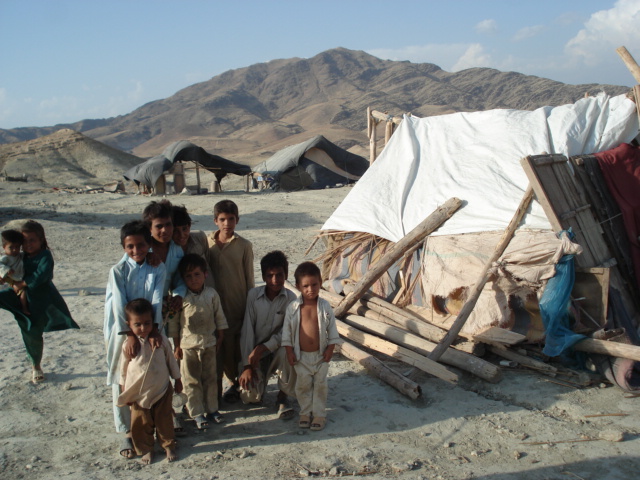Thousands of internally displaced persons (IDPs) in and around Kandahar city in southern Afghanistan need to be temporarily sheltered in a new camp and provided with urgent humanitarian assistance, provincial aid workers told IRIN.
About 2,500 families - roughly 13,000 people - have left their homes in several insurgency-hit districts of Helmand, Uruzgan and Kandahar provinces since late July fleeing violence, government officials say.
Many IDPs have sought refuge at their relatives’ homes, in empty government buildings and rented housing, or have built illegal mud-huts around Kandahar city, according to the local authorities.
“The need for the establishment of a new camp to host recent IDPs is so obvious,” said Abdul Rahim Safi, head of the provincial department for refugee and returnee affairs. “We must accommodate these people somewhere for the foreseeable future,” Safi added.
Several displaced families said they would move to a camp, provided aid agencies addressed their needs. “We will go to any place where shelter, water and security is available,” said one displaced man refusing to be identified.
Drawbacks of new camp
 Photo: Abdullah Shaheen/IRIN  |
| Aid agencies warn that more civilians could be displaced as insurgency-related violence intensifies in Afghanistan |
Shojaudin Shoja, an adviser to the Ministry of Refugee and Returnee Affairs, said: “The UN wants to avoid a protracted humanitarian emergency which could be created by a new IDP camp.”
Regarding demands for a new IDP camp in Kandahar Province - where thousands of drought and poverty-affected IDPs already reside in several camps - Nader Farhad, a spokesman for the UN Refugee Agency (UNHCR) in Kabul, said: “The UNHCR does not have a fixed position on whether to open or not to open IDP or refugee camps.”
Farhad said violence in southern Afghanistan was of a “short term and localised nature” and those fleeing the fighting normally return and “resume their lives” soon after the conflict dies down. He said the UNHCR would only back a plan to manage IDPs if this were proposed by the government and “discussed and agreed upon” by international aid agencies.
Immediately after the fall of the Taliban regime in late 2001, about one million people were displaced in Afghanistan. Most IDPs in the region were settled in Zheray and Mukhtar camps in Helmand and Kandahar provinces, where relief was provided.
However, at the request of the Afghan government, UN relief agencies ended their food aid operations in these two camps in mid 2006 for fear of creating a dependency on food aid, which could motivate some to remain in the camps indefinitely, Nader Farhad said. Thousands of people still live in both camps and need humanitarian assistance, according to local officials and aid workers.
The UNHCR says it has assisted over half a million IDPs to return to their homes since 2002. “This year will be the last year of assisted IDP returns. The UNHCR plans to help some 2,500 families to return to their home areas,” it said in early September, adding that the aim was to conclude the assistance programme in the next three months.
ad/at/ar/cb
This article was produced by IRIN News while it was part of the United Nations Office for the Coordination of Humanitarian Affairs. Please send queries on copyright or liability to the UN. For more information: https://shop.un.org/rights-permissions



